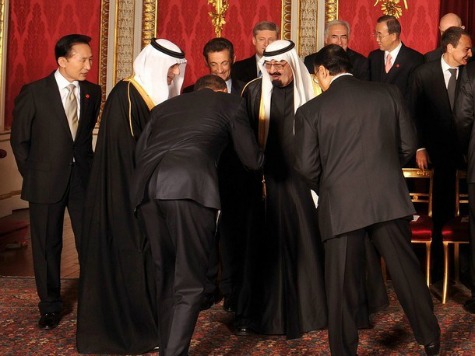The U.S. is withdrawing from leadership in the Middle East. At the same time, the U.S. is becoming less dependent on Middle East oil. Luke Rodeheffer and Lewis King, both graduate students at Istanbul’s Koç University, conclude from these two facts that the U.S. is withdrawing because of its energy independence. It’s a convenient excuse for Barack Obama’s failures in the region, but confuses correlation with causation.
The fact is that President Obama was determined to withdraw from the Middle East, regardless. It is why, in Charles Krauthammer’s words, Obama “tossed away” President George W. Bush’s costly success in Iraq, why he undercut American allies in the region, and why he has allowed Iran to reach the threshold of becoming a nuclear power. Ideologically, Obama is committed to a humbler America on the world stage–oil or no oil.
Furthermore, the shale oil revolution to which Rodeheffer and King refer, and to which they attribute U.S. withdrawal from the Middle East, has occurred despite Obama’s best efforts to stop it. The president is still hostile to fossil fuel development in general, and though he takes credit for the job creation and cheaper energy production that the shale oil boom has produced, he has never quite embraced it politically.
So these two events, while simultaneous, are not causally related. It is worth pointing out two additional facts. One is that the U.S. has not withdrawn entirely from the Middle East, but remains highly involved in one very selective way–namely, pressuring Israel to make concessions to the Palestinians. President Obama has made a point of being more aggressive in that regard than his predecessors–with little to show for it.
The other fact is that even with the rise of shale oil, the vast oil and gas reserves of the Middle East are going to be a strategic asset that fosters interest and competition among the great powers. Where the U.S. leaves, Russia and China soon enter. And the wealth of the region will continue to fund Islamist terror–which is why Bush, who also initially wished to remove the U.S. from the region, had no choice but to intervene.
What is particularly jarring about the way in which Obama has withdrawn is that he has done so by leaving behind more than just American interests and allies. He has also abandoned the cause of human rights, and the cause of international law that he once embraced so enthusiastically when it was a useful foil against his Republican opponents. The effects of that abdication are likely to be felt far outside the Middle East, sadly.

COMMENTS
Please let us know if you're having issues with commenting.